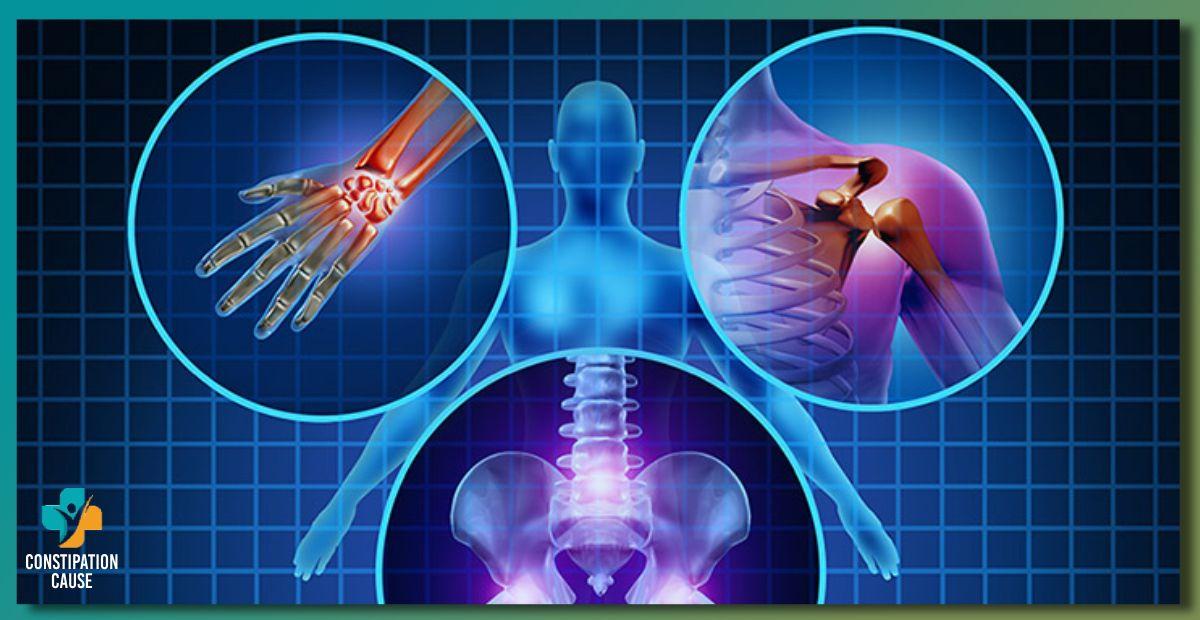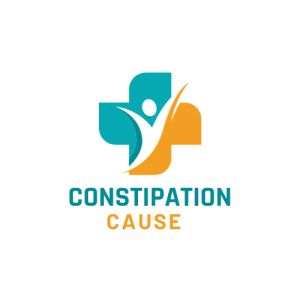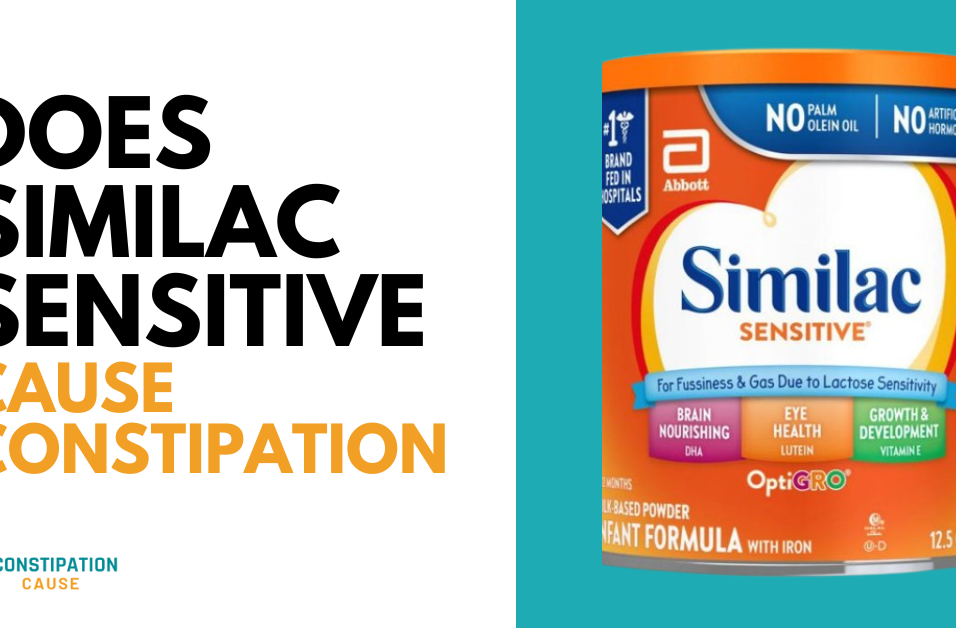While it may sound like an unusual pairing, the connection between constipation and heart attacks is a fascinating health puzzle that deserves your attention.
In a world where heart health is paramount, the revelation that something as seemingly benign as constipation might play a role is both surprising and important.
So, if you are experiencing any symptoms of heartache or simply curious to know how constipation may contribute to heart attack , you have landed at the right page!
In this article, we have answered the question “can constipation cause heart attack?”
So, let’s get started!
Table of Contents
ToggleWhat is Constipation?
Constipation is more than just an occasional inconvenience; it’s a common digestive ailment characterized by infrequent bowel movements or difficulty passing stool. To grasp the full picture, we must unravel its underlying causes. From a lack of dietary fiber to dehydration and sedentary lifestyles, constipation can be triggered by numerous factors.
Can chronic constipation lead to heart attack?

The potential connection between constipation and heart attack risk is an emerging area of interest, though it’s not yet fully understood. Researchers have started to explore the links between chronic constipation and an increased risk of heart-related issues, including heart attacks. Several factors are believed to play a role in this intriguing association:
-
- Inflammation: Chronic constipation can lead to systemic inflammation, which is increasingly recognized as a risk factor for heart disease. Inflammation may contribute to the development of atherosclerosis (narrowing of the arteries) and other heart-related problems.
-
- Vagal Nerve Activity: The vagus nerve, a major component of the autonomic nervous system, is responsible for regulating various bodily functions, including digestion and heart rate. Some studies suggest that constipation may disrupt vagal nerve activity, potentially influencing heart health.
-
- Shared Risk Factors: Constipation and heart disease share common risk factors, such as a sedentary lifestyle, poor diet, and obesity. These factors can contribute to both constipation and heart-related issues.
-
- Medication Use: Some medications used to treat constipation, such as laxatives, can have side effects that impact heart health. It’s essential for individuals to be aware of potential interactions and consult healthcare professionals when using such medications.
-
- Psychological Stress: Chronic constipation can be emotionally distressing, leading to psychological stress. Stress has known links to heart health, and this mental component may indirectly contribute to heart problems.
How chronic inflammation can impact the cardiovascular system:
Chronic inflammation can have a significant impact on the cardiovascular system. When inflammation becomes long-lasting and systemic, it can lead to various adverse effects, including:
-
- Atherosclerosis: Chronic inflammation can trigger the development and progression of atherosclerosis. In this condition, inflammation leads to the accumulation of fatty deposits, or plaque, in the walls of arteries. These plaques can narrow and harden the arteries, reducing blood flow and increasing the risk of heart attacks and strokes.
-
- Plaque Rupture: Inflammation within arterial walls can weaken plaque formations. If these plaques rupture, they can trigger the formation of blood clots, which can suddenly block blood flow in an artery, leading to heart attacks or strokes.
-
- Endothelial Dysfunction: Chronic inflammation can damage the endothelium, the inner lining of blood vessels. This damage can lead to impaired blood vessel function, contributing to hypertension and promoting atherosclerosis.
-
- Promoting Blood Clot Formation: Chronic inflammation can increase the risk of blood clots. These clots can obstruct blood flow in arteries, causing heart attacks and strokes.
-
- Contributing to Heart Disease Risk Factors: Chronic inflammation can exacerbate other risk factors for heart disease, including high blood pressure, high cholesterol, and insulin resistance.
-
- Reducing Heart Function: Prolonged inflammation can impact the heart itself, potentially leading to heart muscle damage and reduced cardiac function.
Lifestyle Changes for Prevention:
Preventing constipation through dietary and lifestyle changes is not only beneficial for digestive health but also aligns with maintaining a heart-healthy lifestyle. Here are some practical tips to keep constipation at bay while supporting your cardiovascular well-being:
-
- Fiber-Rich Diet: Incorporate plenty of fruits, vegetables, whole grains, and legumes into your meals. High-fiber foods support regular bowel movements and reduce the risk of constipation while promoting heart health.
-
- Stay Hydrated: Adequate water intake is essential for softening stools and aiding digestion. This simple practice can prevent constipation and help maintain cardiovascular health.
-
- Regular Exercise: Physical activity not only keeps your heart strong but also encourages healthy bowel movements. Aim for at least 30 minutes of moderate exercise most days of the week.
-
- Stress Management: Chronic stress can contribute to both constipation and heart disease. Engage in stress-reduction techniques such as meditation, yoga, or deep breathing exercises.
-
- Balanced Diet: Maintain a well-balanced diet to support your overall health. This includes limiting saturated fats, processed foods, and excess sugar.
-
- Routine Meals: Try to eat meals and snacks at consistent times daily to establish a regular schedule for bowel movements.
-
- Monitor Medications: If you’re on medications that may contribute to constipation, discuss potential alternatives or strategies with your healthcare provider.
-
- Avoid Smoking: Smoking is detrimental to both your heart and digestive system. Quitting smoking is a crucial step in maintaining overall health.
Exercises for Heart Health:
Regular physical activity is a cornerstone of heart health. Engaging in various exercises and activities can significantly reduce impact of constipation on cardiovascular health. Here’s a list of exercises and how they contribute to cardiovascular well-being:
-
- Aerobic Exercise: Activities like brisk walking, jogging, swimming, and cycling improve heart and lung function, lower blood pressure, and reduce cholesterol levels, decreasing the risk of a heart attack.
-
- Strength Training: Building muscle through resistance exercises enhances metabolism and helps manage weight, which can alleviate strain on the heart.
-
- Interval Training: High-intensity interval training (HIIT) alternates short bursts of intense exercise with recovery periods, which can improve heart health more efficiently than steady-state cardio.
-
- Yoga: This mind-body practice enhances flexibility, reduces stress, and can lower blood pressure, all of which promote heart health.
-
- Pilates: Focused on core strength and flexibility, Pilates can support posture and overall fitness, benefiting the heart.
-
- Swimming: This low-impact exercise offers a full-body workout, improving cardiovascular fitness while being gentle on the joints.
-
- Dancing: Whether it’s ballroom, salsa, or hip-hop, dancing is a fun way to boost heart health through aerobic exercise.
Regular exercise enhances heart health by:
-
- Strengthening the heart muscle, enabling it to pump blood more efficiently.
-
- Lowering bad cholesterol (LDL) levels and increasing good cholesterol (HDL).
-
- Reducing blood pressure and the risk of hypertension.
-
- Enhancing blood vessel function, improving blood flow.
-
- Managing body weight and reducing the risk of obesity, a significant heart attack risk factor.
Conclusion:
In this article, we’ve explored the link between severe constipation and heart attack. While the exact nature of this link is still under investigation, several factors suggest that constipation and its association with heart attacks exist. We’ve discussed the shared risk factors between these conditions, emphasizing the importance of a heart-healthy lifestyle in preventing both constipation and heart disease.
The potential association between constipation and heart attacks is a compelling area of study, and it underscores the significance of maintaining digestive health for overall well-being. While research continues to uncover the depth of this relationship, one thing is clear – the choices you make for your heart and your digestive system are intertwined. Prioritizing a balanced diet, regular exercise, stress management, and other heart-healthy habits can go a long way in supporting your cardiovascular health while potentially warding off the discomfort of chronic constipation. Stay attuned to your body, consult with healthcare professionals when needed, and embrace a holistic approach to health that cares for your heart and digestive system alike.









Leave feedback about this